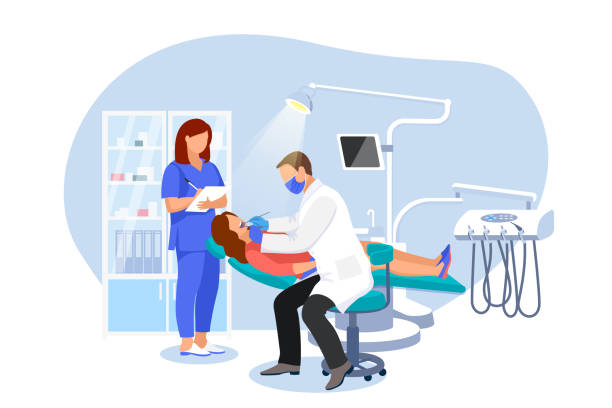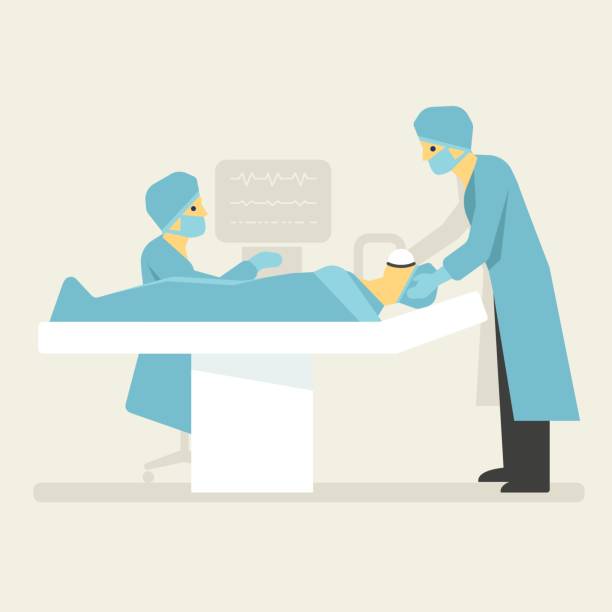Mon-Sat 9am-7pm











Anesthesiologists are medical doctors just like your primary care physician and surgeon. They specialize in anesthesia care, pain management, and critical care medicine, and have the necessary knowledge to understand and treat the entire human body. Anesthesiologists have 12 to 14 years of education, including medical school, and 12,000 to 16,000 hours of clinical training.
To be a successful anesthesiologist, you should be meticulous in your work, focused, and detail-oriented. You should be able to work under intense pressure and stress as you are responsible for people's lives.

Physicians who specialize in anesthesiology begin their academic careers with an undergraduate degree from an accredited college or university, typically majoring in pre-med or science. They take courses in biology, calculus, chemistry, and physics, which all prepare students for the Medical College Admission Test (MCAT) and medical school.
However, most medical schools do not require applicants to take these courses nor have a bachelor's degree in any of these subjects for admission. Successful physicians could have undergraduate degrees in any number of subjects, including anthropology, English, or pre-law. Instead, MCAT scores are the main determining factor.
The MCAT is required for admission to medical school. Along with evaluating candidates' analytical skills, it tests their knowledge of biology, chemistry, psychology, and sociology. With MCAT scores in hand, prospective anesthesiologists can apply to medical school, where they must earn either a doctor of medicine (MD) or doctor of osteopathic medicine (DO).
At the end of two years of coursework, students take a test called Step 1 — often referred to as "Boards." Boards are required by the United States Medical Licensing Examination (USMLE) for MDs and by the Comprehensive Osteopathic Medical Licensing Examination (COMLEX-USA) for DOs to obtain a medical license and practice medicine.
After the Boards, anesthesiology students must complete two years of clinical training, working with patients suffering a variety of ailments under the supervision of an experienced physician.
Clinical training concludes with the Step 2 test, which has two parts: a written test on internal medicine, gynecology, preventive medicine, and surgery; and an assessment of clinical skills, including communication and interpersonal skills and proficiency in English.
In the United States, anesthesiologists earn high salaries and are among the highest-paid doctors and physicians. They also enjoy a good level of job security, because all hospitals and surgical centers need anesthesiology experts to manage and monitor procedures. Junior anesthesiologists and recent graduates can find jobs quickly and easily.
Anesthesiologists work with many types of patients, including those in need of dental or maternity services. Unless you become a specialist, you can work in various departments, including research, pediatrics, ambulatory anesthesia, obstetrics and critical care. Because you work as part of a medical team, you also get a variety of opinions from other professionals, enhancing your work methods.
Most anesthesiologists can work in any hospital or facility without practicing there. For example, freelance anesthesiologists don't need physical offices to operate. When your shift is over, you don't have to perform extensive administrative documentation. In most cases, you can write a brief description using a couple of sentences, meaning you can go home at the end of each shift, unlike many other medical professionals.
Anesthesiologists have less contact with patients than other medical professionals. If the operation is successful, the primary physicians are responsible for managing the patient's pain, infections, swelling and dressing needs. Anesthesiologists also often care for one patient at a time, while their colleagues manage many cases and patients simultaneously.
Part-time employees and contract anesthesiologists can choose the hours, days and times they work. If you're a new or expectant mother, for example, this career path allows you to care for your child while still working. Flexible work schedules allow time for hobbies and personal time, such as taking family vacations. It's also easier to get colleagues to work your shift during emergencies because most anesthesiologists have similar skills.
Being an anesthesiologist is satisfying because you know whether you have fulfilled the patient's expectations immediately after the procedure. Anesthesiologists also receive instant feedback on their processes. The job requires controlling the body's functions within a short time and determining the effects of the medications used.
The health care industry continually benefits from innovative technology and advances. As a result, anesthesiologists work with computerized systems when accessing medical records, administering dosages and monitoring patients. These medical professionals can rely on accurate resources for accessing patient information or documenting policies, allowing them to perform their duties quickly and easily. Online training software and learning systems let anesthesiologists learn new skills and knowledge remotely, freeing up more time to focus on their jobs.
:It takes at least eight to 12 years to become an anesthesiologist. You begin your studies when you apply for an M.D.—a degree program that takes four years to complete. During the first year of your residency program, you do a clinical rotation associated with general medicine. You can focus on clinical anesthesia training in the remaining three years. Graduates can then complete a one- to two-year fellowship, focusing on a specific area of anesthesia, such as pediatrics or neurosurgery.
The last step is getting a license. You cannot practice without fulfilling the educational qualifications and other requirements set by your state. Seek a master's degree in nursing to work as a professional who supports a doctor anesthesiologist. Students can only study for a master's after completing a bachelor's degree in nursing and a subsequent license in nursing.
When managing acute and critical patients, a small mistake or miscalculation can be life-threatening. Anesthesiologists are under pressure to exercise caution in everything they do. They're also at risk of legal action from patients who believe they didn't receive proper treatment or care. Litigation can threaten any medical professional's financial and job security. The pressure is highest when anesthesiologists are multitasking and adjusting medications to maintain patient vitals such as blood pressure, breathing rhythm, heartbeat and physical state.
Sometimes surgeries take longer than expected, causing the anesthesiologist to work extended hours to accommodate the changes. You might arrive to work earlier than the surgeons to set up the operating room and give the patient the required anesthetic before surgery. You might also get called in for emergency surgery after hours. Anesthesiologists rarely keep a predictable work schedule.
Anesthesiologists mainly deal with patients who are partially or fully unconscious. After the procedure, the patient might not remember everyone on their health care team. Anesthesiologists might feel unappreciated because they don't receive personal feedback or gratitude from their patients. Also, because you don't usually follow up on your patients' progress, you might wonder if they're recovering well.
Because anesthesiologists have limited interactions with their patients, they rarely have a consistent client base. They're also less likely to build a connection and rapport with patients, except during pain management.
Many hospitals depend on physician reputations and client referrals, which anesthesiologists rarely receive, to get income. Anesthesiologists work on patients other physicians bring in. The position makes it difficult to negotiate pay and benefits because anesthesiologists can't always quantify their worth.
As an anesthesiologist, you treat high-risk patients and ensure their safety in critical conditions. You experience the stress of being responsible for a patient's life. Employers expect you to make quick decisions and perform under pressure. Working for long hours, including some nights, weekends and holidays, can increase stress levels and expose you to potential burnout.
Ethical issues can also be stressful. For example, it can be emotionally challenging to prescribe drugs for procedures when the patients have little chance of recovery.
Call us at +91 9205084085, Monday - Friday, 9 am - 7 pm


